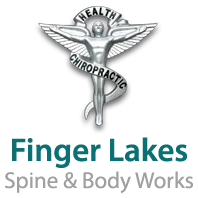
Everyone knows that eating a wide variety of foods is crucial for good health. Modern farming practices, however, have robbed foods of essential nutrients. Refined white flour, for example, contains less than a quarter of vitamins E and B6, magnesium, manganese, and zinc. Supplementation to restore depleted nutrients has become very important, and multi-vitamin/ mineral (MVM) supplements, which provide a range of nutrients in one pill, have been gaining popularity.
What should a good multi-vitamin/mineral supplement contain?
Compare the supplement label with periodically updated nutrient Daily Values. Vitamins E and K, the ultra trace elements, and bulky ingredients-calcium, magnesium, and potassium-are often supplied in inappropriate amounts. Vitamin A, phosphorus, and iodine are overabundant in the U.S. diet. Extra iron and possibly copper may be potentially hazardous for those who already consume them from foods.
Supplements can contain vitamin A as retinol or beta carotene. Beta carotene has a very low toxicity potential and is a better antioxidant. Those with diabetes or hypothyroidism, however, may not adequately convert beta carotene into vitamin A, requiring an MVM with some retinol (e.g., 2,000 international units [IU] a day).
Vitamin D deficiency may increase the risk of diabetes, hypertension, autoimmune diseases, certain cancers, and muscle and joint pain. From infancy, 200 IU a day is recommended, rising to 400 IU a day after age 50 and to 600 IU a day after age 70. Individuals with increased risk for osteoporosis may need as much as 800 IU a day.
Antioxidant vitamin E (100-400 IU a day) may help prevent cancer and atherosclerosis. Vitamin C is another important antioxidant; 200-400 mg a day is recommended. Vitamin K
(90-120 mcg) is especially important in chronic antibiotic therapy or intestinal absorption problems.
The vitamin B complex is often overabundant in MVMs. Instead, daily requirements for each B vitamin are sufficient, unless you need a certain B vitamin for your condition.
Calcium and magnesium can inhibit each other's absorption, so keep the two minerals below 500 mg per pill. Those at risk for calcium deficiency may need an additional calcium supplement. Mutually dependent zinc and copper should be supplied in a 15-to-1 ratio.
Phosphorus, available in the diet, may interfere with calcium and iron balance. Choose an MVM with a calcium- phosphorus ratio of more than 2 to 1 or without phosphorus. Iodine, widely available in water and foods, is not needed in an MVM.
MVMs typically contain about 100 mg of potassium, although 2,000 mg is recommended. To obtain adequate potassium, consume fruit and vegetables.
MVMs usually don't include iron because of overdose concerns. For those iron-deficient, most iron supplements are well absorbed, but ferrous sulfate can be irritating to the gastrointestinal tract.
Manganese helps in connective tissue metabolism. Most supplements contain adequate amounts. Chromium (at least 100 mcg a day) is important in sugar and lipid metabolism. Organically bound chromium (except chloride) is better absorbed. Selenium (at least 55 mcg a day) may help prevent cancer. Many formulas contain up to 200 mcg a day.
Is it possible to consume too much of some nutrients?
Yes. Many common foods, such as breakfast cereals, snack and energy bars, fruit juices, and dairy products, are fortified with micronutrients. Overdoses of some nutrients may be hazardous.
Vitamin K, several B vitamins, chromium, and potassium are safe at any levels. Reaching the maximum intake of others-vitamin E (1,500 IU), boron (20 mg), choline (3,500 mg for adults), calcium (2,500 mg), phosphorus (3,000-4,000 mg), copper (10 mg), and iodine (1,100 mcg)-is very rare. Overdoses of others can cause minor side effects, such as loose stools from 2000 mg of vitamin C or 350 mg of magnesium, or skin flushing from 35 mg of niacin. High folic acid intake (1,000 mcg) can mask vitamin B12 deficiency.
Upper limits can also be outdated. Although UL for vitamin D is 2,000 IU, new evidence suggests that 4,000 IU is safe and possibly desirable. Retinol, with a UL of 10,000 IU, may increase risk of bone loss at only 5,000 IU.
To prevent potentially hazardous intakes:
• Minimize retinol in favor of beta carotene.
• Supplement with iron only if deficient.
• Keep vitamin B6 under 100 mg.
• Choose MVMs where zinc (UL of 40 mg) is included with copper.
• Avoid protein supplements on top of a high protein diet, which may increase the risk of osteoporosis and kidney stones.
Some people need more supplements than others:
• Strict vegetarians need supplementation with vitamin B12.
• Women of childbearing age who consume few fruits, leafy vegetables, and legumes should take folic acid supplements and may be deficient in iron.
• Limited dairy intake and sunlight exposure may put people at risk for insufficient vitamin D and calcium.
• The elderly are commonly deficient in calcium, vitamins D and B12, and folic acid.
Can I choose supplements myself?
Generally, "self-prescribing" is not recommended. People are biochemically unique, and, for safety and optimum benefit, many dietary factors should be weighed. Nutritional assessment is especially important for those with underlying chronic diseases, potential drug-nutrient interactions, or specific deficiencies or absorption problems. Doctors of chiropractic specializing
in nutrition can evaluate your diet, perform a screening nutritional assessment, and recommend an
appropriate diet and supplementation plan.
Remember that dietary supplements cannot replace foods. Whole foods provide many vitamins, minerals, antioxidants, fiber, and phytonutrients not reproducible by pills. Unlike supplements, whole foods can reduce the risk of many diseases, including cancer, diabetes, stroke, and heart disease. For example, diets high in beta carotene protect against cancer-but beta carotene supplements produce no results or even make things worse! For best health, consume whole grains, legumes, fruits, vegetables, oils, nuts, and seeds.
Resources:
http://lpi.oregonstate.edu/infocenter/index.html
http://www.pccnaturalmarkets.com/health/Index/Supp.htm
